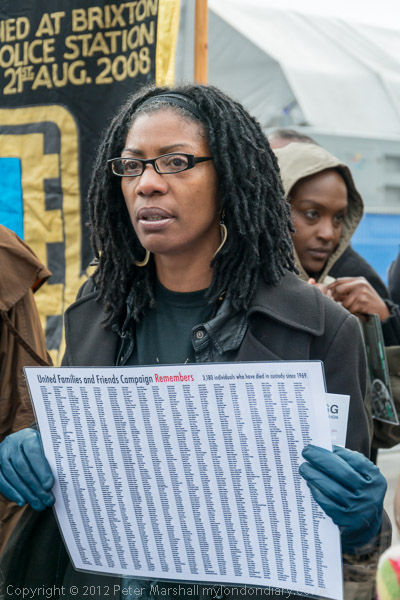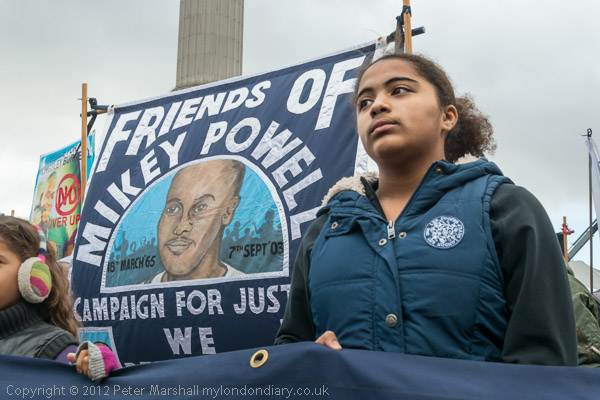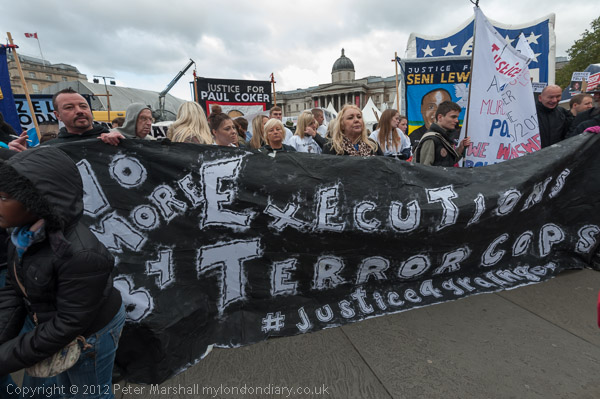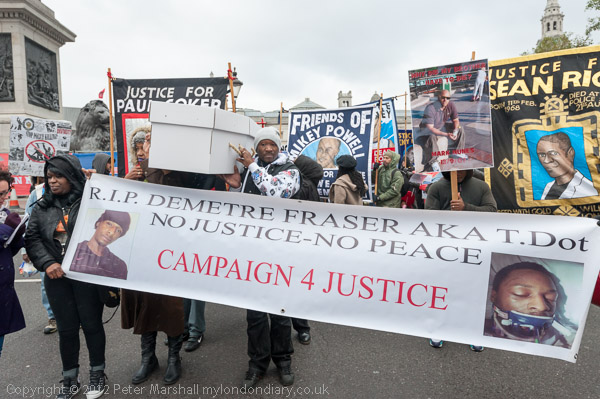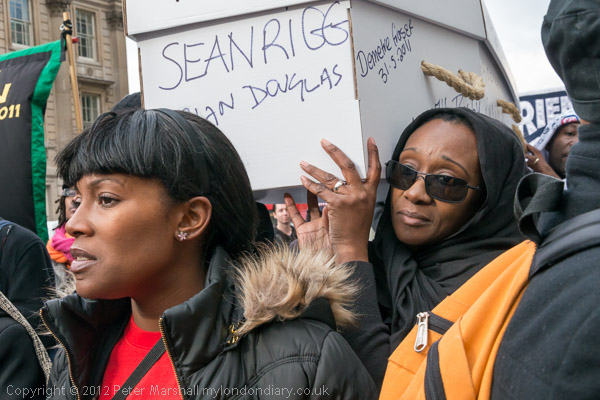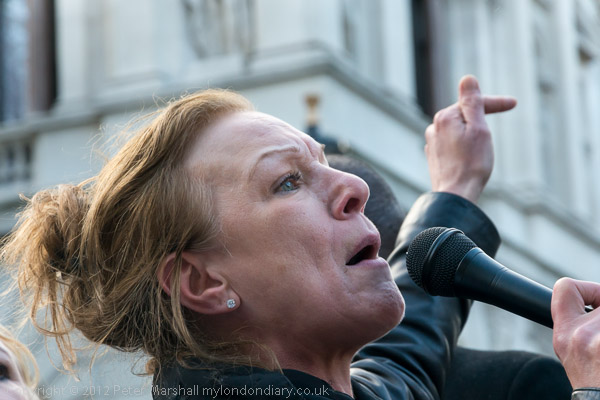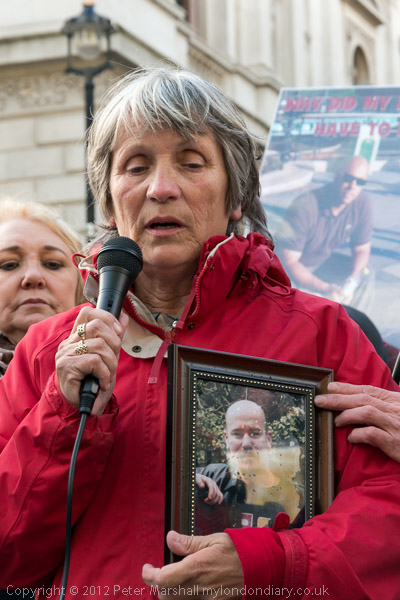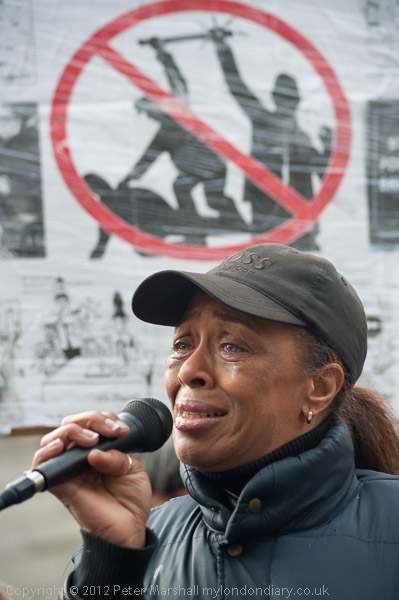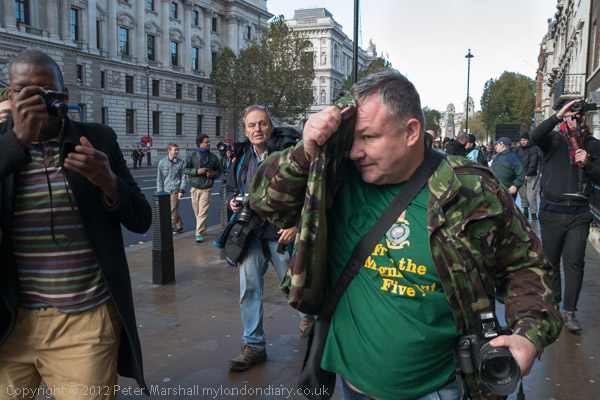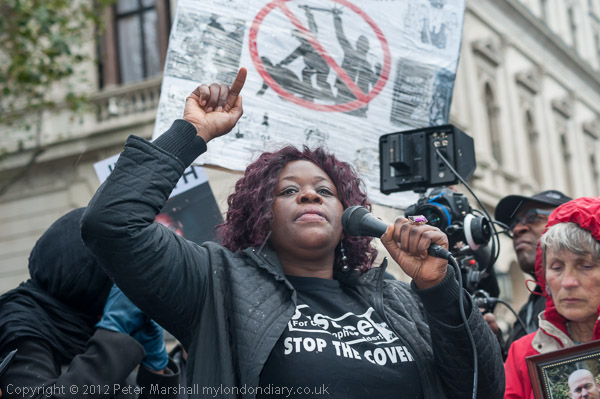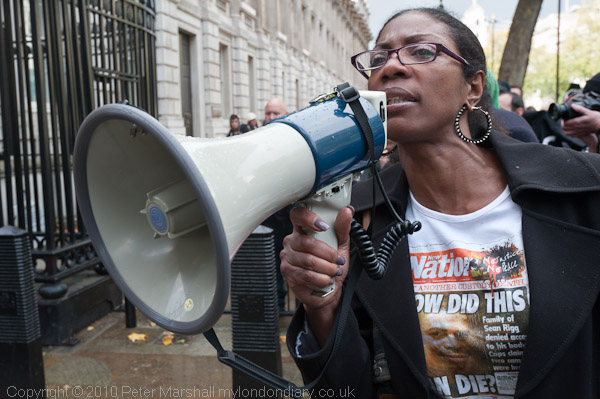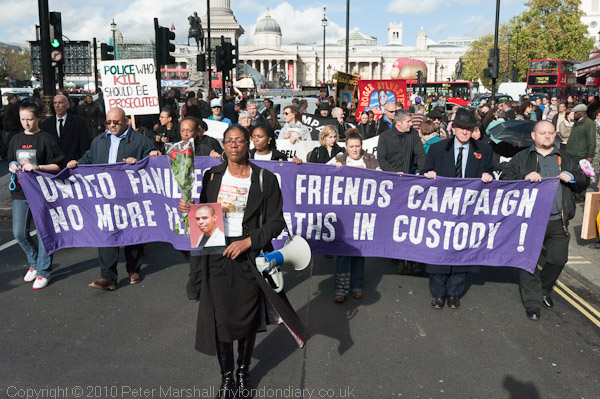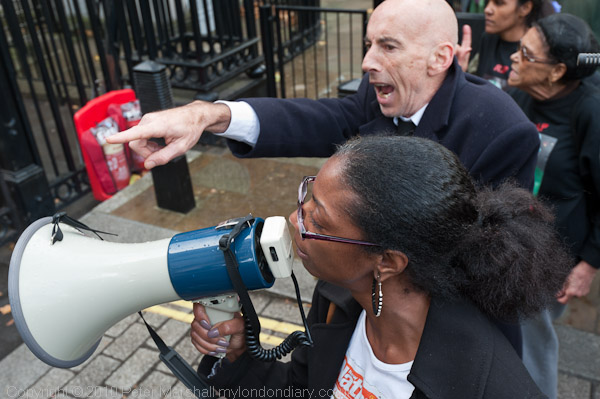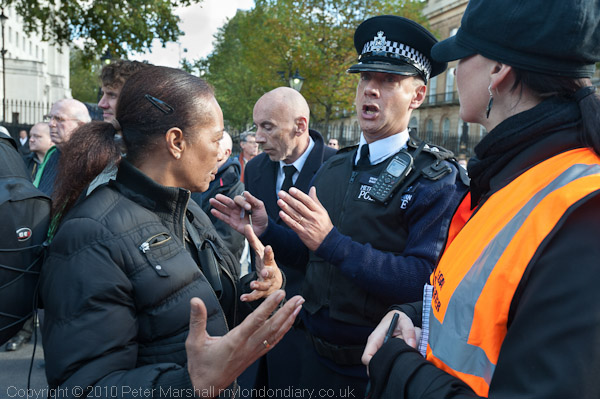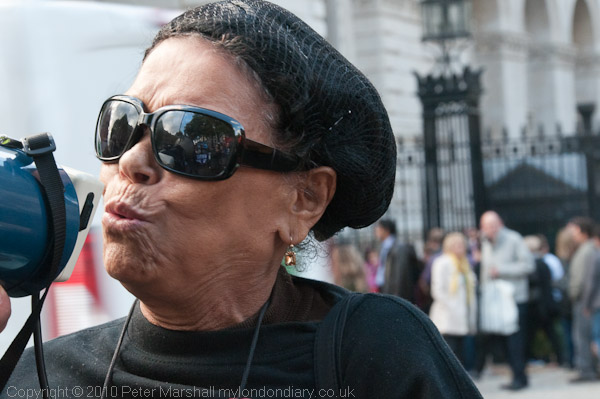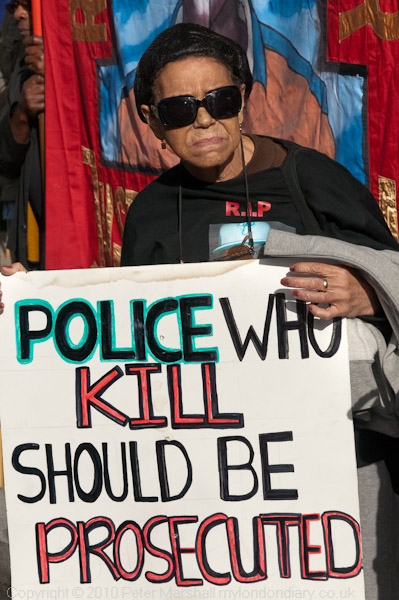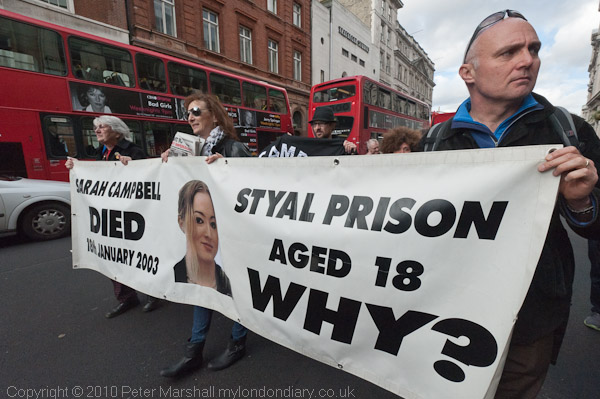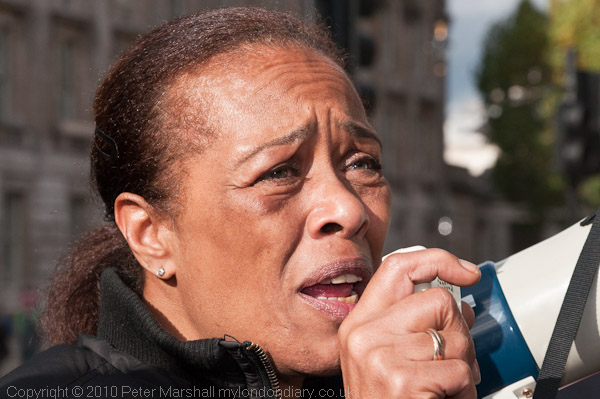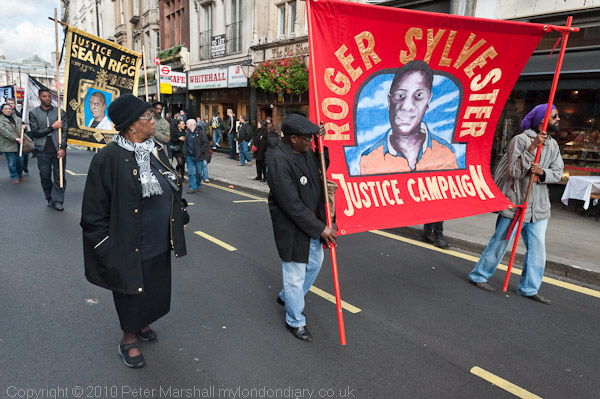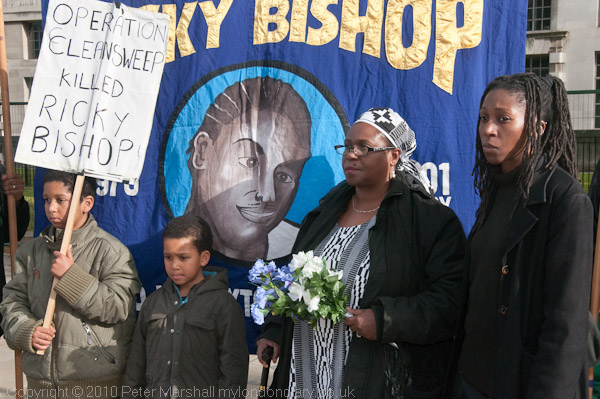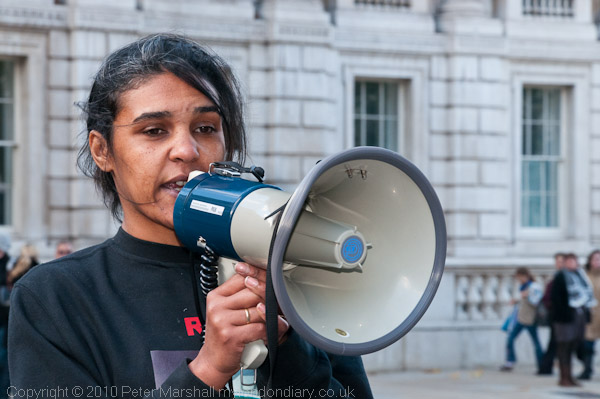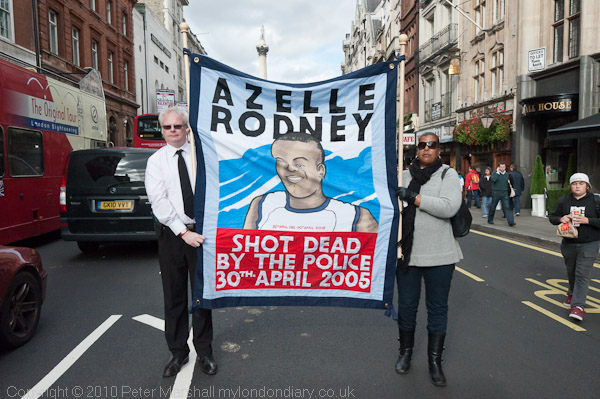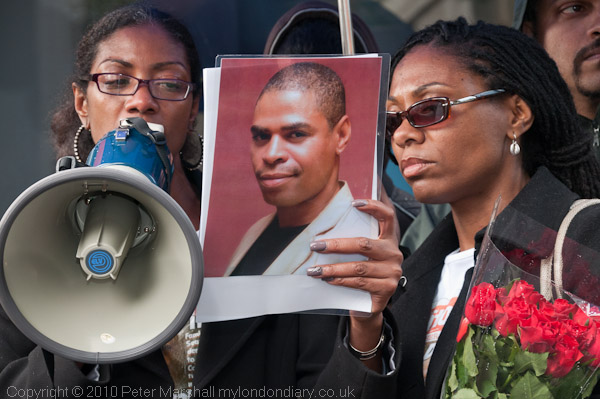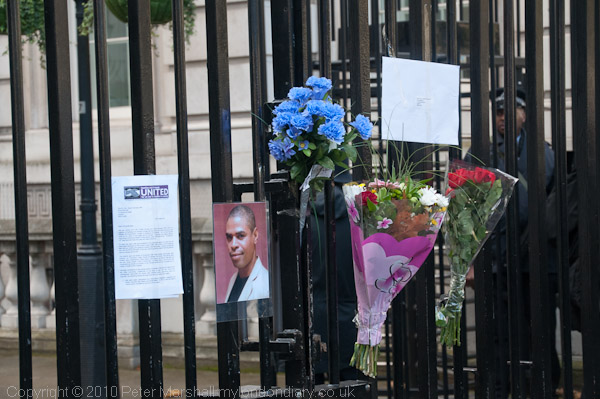Marine A, Mandela, CPS Failures, Cops off Campus: On Friday 6th Decemeber 2013 some very varied events were taking place in Central London. Here they are in the order I photographed them.
EDL Protest Supports Marine A – Downing St
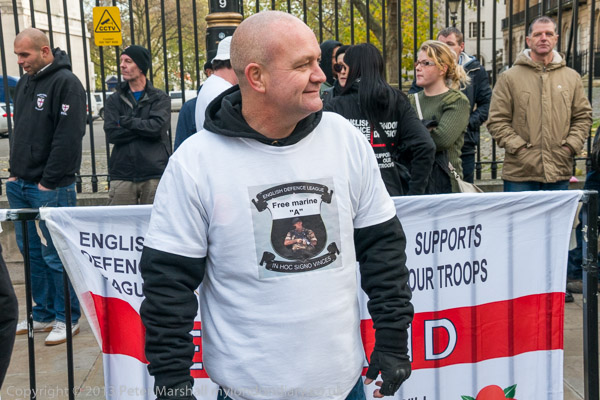
The EDL had called for a major protest at Downing Street on the day that ‘Marine A’, Sergeant Alexander Blackman, was to be sentenced, but only around 50 supporters were there when I arrived.
Blackman was being tried for the murder of a wounded Taliban insurgent in Afghanistan in contravention of the Armed Forces Act 2006, and became the “first British soldier to be convicted of a battlefield murder whilst serving abroad since the Second World War.“

I commented “I doubt if there are many serving soldiers who would wish to see the Geneva conventions disregarded, and wonder what support if any this protest would have from serving soldiers, many of whom have condemned strongly the cold-blooded killing of a prisoner by Marine A and called for an appropriate sentence.“
However many did feel when later that day he was sentenced to “life imprisonment with a minimum term of ten years and dismissed with disgrace from the Royal Marines” he had been treated harshly, and in 2014 the sentence was reduced to eight years, then after a public campaign overturned on appeal and reduced to manslaughter on the grounds of diminished responsibility. Given the time he had served he was released in April 2017.
Tributes to Mandela – Parliament Square & South Africa House
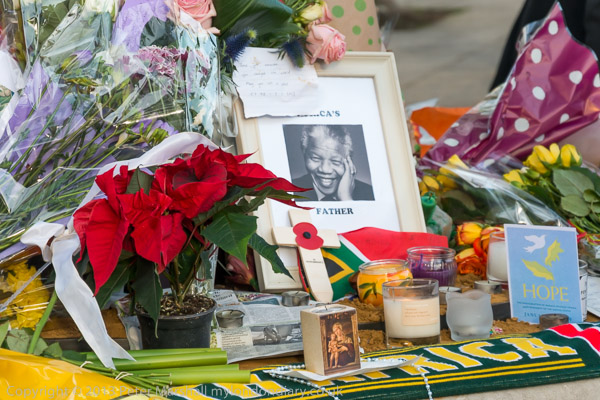
Nelson Mandela, the “Father of the Nation” who had become the first president of a new post-apartheid South Africa from 1994-1999, having previously spent 27 years in prison before his release in 1990, had died the previous day, 5th December 2013.
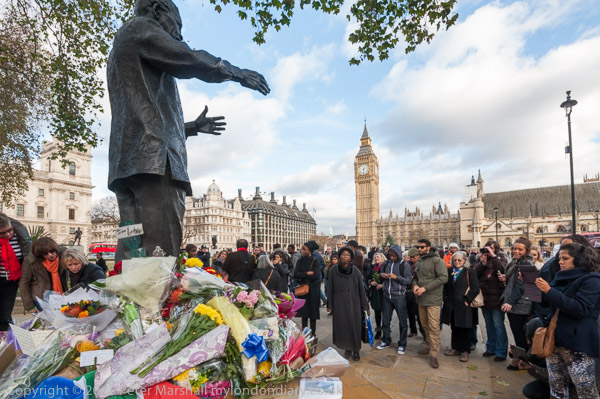
People brought flowers to the Nelson Mandela statue in Parliament Square and to South Africa House in Trafalgar Square, where a long queue waited patiently for several hours to sign a book of remembrance in the High Commission.
Bereaved protest at CPS Failure – Southwark Bridge
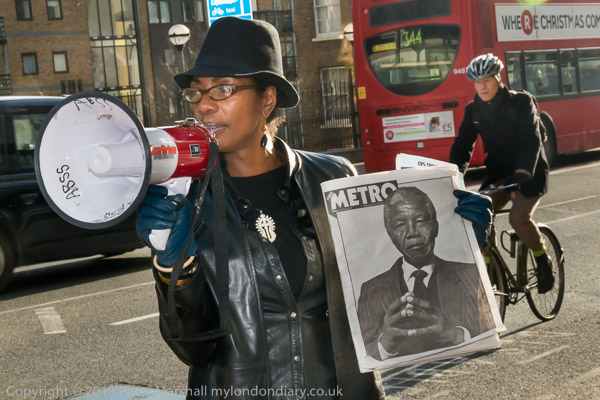
Since 1990 there had been 1433 deaths of people in custody, many under highly suspicious circumstances and not a single conviction of any police, prison officers or security guards who have either failed in their duty of care or more actively caused their deaths.
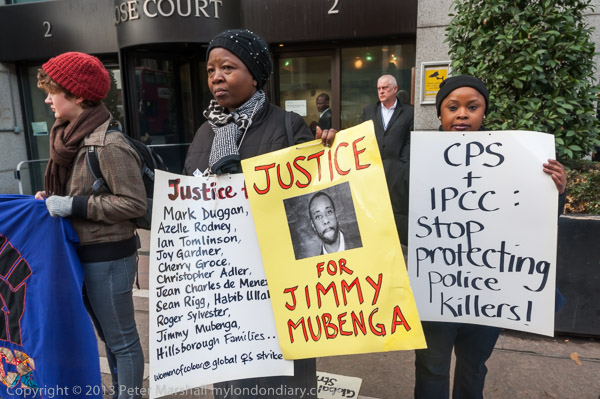
Relatives and friends of those who dies had come to protest outside Rose Court, the home of the Crown Prosecution Service. The last successful prosecution brought against a police officer was for involvement in a black death in custody was in 1972, after the death of David Oluwale in 1969. Police officers have been prosecuted for several other black deaths in custody – Joy Gardner, Christopher Alder and Mikey Powell – but none was successful.
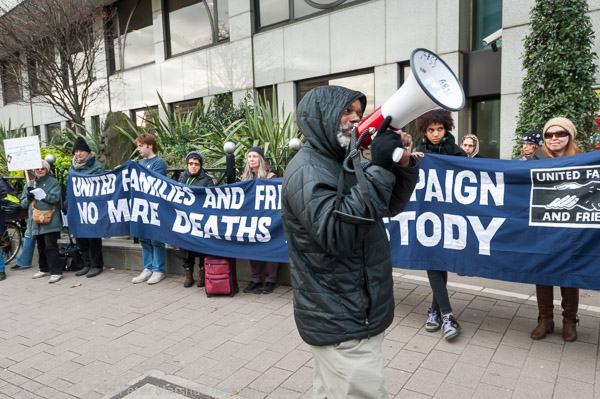
The standard response from the CPS – led by Keir Starmer from 2008-2013 – is that there is ‘not enough evidence to prosecute’, largely because the cases have not been properly investigated. Often the police involved are simply not questioned, and in some other cases they simply refuse to answer questions.
Bereaved protest at CPS Failures
‘Cops Off Campus’ Protest Police Brutality – Bloomsbury

Following protests by students and others against student fees and cuts, the closure of the student union and calling for acceptable pay and conditions for low paid largely migrant cleaners, catering staff, security staff and others, the University management had tried to ban protests on campus and had brought in numbers of police to enforce that ban.

This protest was called after the previous day police had brutally assaulted a group of students who had briefly occupied a part of Senate House, arresting a number of students including the Editor of the student newspaper and a legal observer.

The organisers had intended this to be an entirely peaceful march around the various s sites of the university in the area to the west and north of Russell Square, but it was clear that the police had other ideas. There seemed to be police vans down every side-street in the area as students assembled on the pavement outside the University of London Union in Malet St.
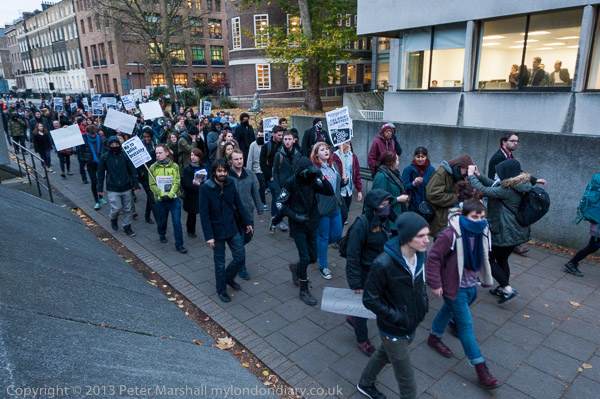
There were a few short speeches before the march set off to walk around the block but were stopped by a line of police across the street, with those who tried to walk through it thrown roughly backwards.

They turned around only to find police blocking both the other end of the street and a side street leading to Gower Street and their only way open was to go onto the campus, walking past SOAS and out onto Thornhaugh Street. There they turned up into Woburn Square and then turned to make their way into UCL, only to find the gates from Torrington Place were locked and guarded by security.

They then turned into Gower Street where they saw another group of police rushing towards them and they then rushed through the gates into the Main Quad. Here there was a lot of discussion about what to do next and they eventually decided to take a back street route to Torrington Square, and set off at a rapid pace. I took a more direct route to meet them there. But by now it was dark and I was tired of walking around London and decided to go home.
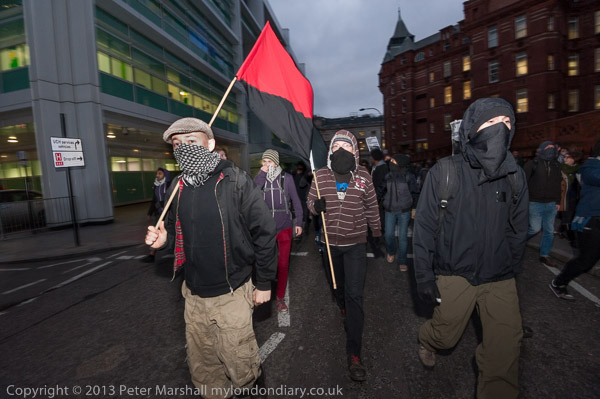
The police operation seemed to me “an incredible and pointless waste of public money, and it resulted in more inconvenience to the public than if the event had not been policed at all.” Perhaps more importantly this kind of policing alienates a large proportion of young people, acting strongly to destroy the ‘policing by consent’ which has always been the the basis of our police system.
More at ‘Cops Off Campus’ Protest Police Brutality.
Flickr – Facebook – My London Diary – Hull Photos – Lea Valley – Paris
London’s Industrial Heritage – London Photos
All photographs on this page are copyright © Peter Marshall.
Contact me to buy prints or licence to reproduce.
